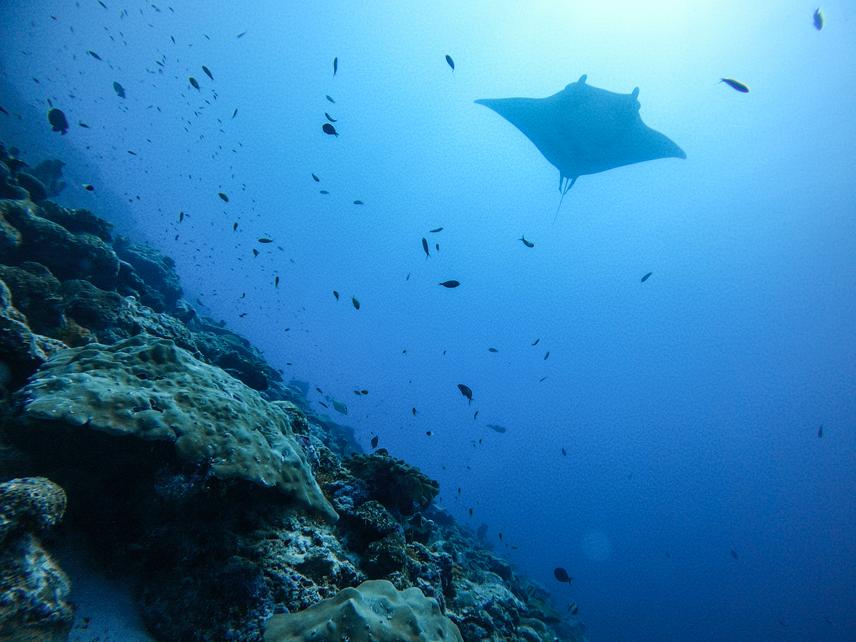Kaitlyn Zerr
Oceanic sharks and rays are overexploited in fisheries, oftentimes due to the high value of their fins or gill plates. Consequently, populations have experienced significant declines in recent decades. Fuvahmulah Atoll, known as ‘the Galapagos of the Maldives’ is a recently designated UNESCO Biosphere Reserve in southern Maldives. Although this isolated Atoll is believed to harbour extraordinary elasmobranch (shark, ray) biodiversity, no scientific studies have yet been conducted. In Fuvahmulah, divers report sightings of tiger sharks and endangered species such as oceanic manta rays, scalloped hammerhead sharks, pelagic thresher sharks, and whale sharks, many of which outnumber sightings from other regions in the Maldives.

My project, supported by the Manta Trust and the University of Victoria, will use underwater timelapse cameras to characterize the Atoll’s marine megafauna diversity. In addition to creating a baseline dataset highlighting the importance of Fuvahmulah for many endangered marine species, surveys will be conducted with tourists to assess the valuation of Fuvahmulah’s marine biodiversity and investigate the willingness to pay for increased Biosphere Reserve protection. Identifying the diversity and visitation of species which are at heightened risk of extinction, as well as addressing how tourism can be used to further conservation efforts, will aid in developing comprehensive management plans for the new UNESCO Biosphere Reserve to protect Fuvahmulah’s significant biodiversity for future generations.
This project is conducted with local dive operators as well as the assistance of four local marine science students; Aahil Ibrahim, Hassan Mohamed, Madhyan Mohamed Saeed and Shajan Ibrahim. Additionally, an undergraduate student from the University of Victoria, Sarah Manson, is assisting data analysis. Special thank you to Fuvahmulah Dive School for their collaboration on the timelapse camera study and Pelagic Divers Fuvahmulah for their support with the tourist surveys.